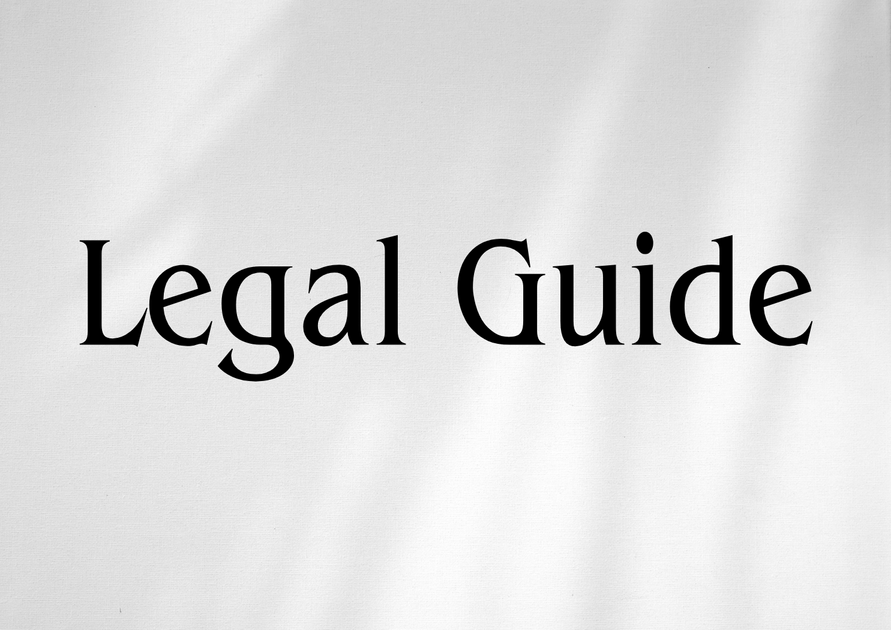Introduction: Why Independence and Impartiality of Arbitrators Matter in the UAE
The United Arab Emirates has rapidly advanced its position as a leading arbitration hub, not only in the Middle East but on the global stage. With the rise of cross-border investments, major infrastructure projects, and the demands of an ever-evolving commercial landscape, arbitration is frequently the preferred route for dispute resolution. Central to the credibility and effectiveness of arbitration in the UAE is the bedrock principle that arbitrators must be independent and impartial throughout the proceedings. In 2025, especially following the full enforcement of Federal Law No. 6 of 2018 on Arbitration—a law that aligned UAE arbitration practices with global best practices—and in light of subsequent implementing regulations and court guidance, strict standards have been set for the conduct of arbitral tribunals.
For UAE-based businesses, senior executives, HR professionals, and legal practitioners alike, upholding arbitrator independence and impartiality is not just a matter of legal compliance but is essential for ensuring fair outcomes and protecting reputational standing. Ignorance or disregard of these standards can expose entities to significant risks, from setting aside arbitral awards to reputational damage and additional litigation costs. This article offers an expert, in-depth analysis of UAE’s legal framework on arbitrator independence and impartiality, compares recent and prior standards, examines practical scenarios, and outlines key compliance strategies for organizations and individuals navigating arbitration in the UAE context.
Table of Contents
- Legal Framework Governing Arbitrator Independence and Impartiality in the UAE
- Key Legal Standards and Requirements
- Recent Updates: 2025 Provisions and Regulatory Guidance
- Comparing Old and New Laws: A Comparative Analysis
- Practical Applications and Case Studies
- Key Areas of Compliance Risk
- Strategies for Ensuring Compliance with UAE Arbitration Standards
- Conclusion and Best Practices for 2025 and Beyond
Legal Framework Governing Arbitrator Independence and Impartiality in the UAE
Legal Sources: Federal Law No. 6 of 2018 on Arbitration
The principal instrument governing arbitration in the UAE is Federal Law No. 6 of 2018 on Arbitration (“UAE Arbitration Law”), which replaced earlier provisions previously scattered across the Civil Procedure Law (Federal Law No. 11 of 1992). This Law, supplemented by Cabinet Resolution No. 57 of 2018 and guidance issued by the UAE Ministry of Justice and the Federal Legal Gazette, closely mirrors the UNCITRAL Model Law, aligning the UAE with international standards—including those found in the ICC, LCIA, and DIAC rules.
Key legal references include:
- Articles 10, 14, and 15 of Federal Law No. 6 of 2018: Laying down requirements for independence and impartiality and disclosure obligations.
- Ministerial Guidance 2022/1: Detailing investigator duties upon receiving challenges to arbitrator conduct.
- Federal Law No. 11 of 1992 (as amended): Limited transitional provisions relating to ongoing legacy arbitrations.
These legal frameworks are actively enforced by the UAE Ministry of Justice, and monitored via the Federal Legal Gazette and the UAE Government Portal.
What Is Required by Law?
The UAE Arbitration Law mandates that every arbitrator must be, and remain, independent and impartial during the entire arbitral process. This serves to guarantee fairness, avoid conflicts of interest, and ensure public and party confidence in the arbitration process.
- Independence: No direct or indirect relationship with the parties, counsel, or other arbitrators that might affect judgment.
- Impartiality: No bias, preconceived opinions, or interest in the subject matter that might sway the decision.
Key Legal Standards and Requirements
Qualifications for Appointment
Article 10 of the UAE Arbitration Law sets forth that an arbitrator must not be:
- Under guardianship or suffering from a legal incapacity.
- Convicted of a crime breaching honour or trust, unless rehabilitated.
- Affiliated (as employee, consultant, agent, or equity-holder) to any party to the dispute.
Disclosure Obligations
Article 14 stipulates that, prior to accepting appointment, an arbitrator must disclose any circumstances likely to give rise to doubts as to their independence or impartiality. This includes prior relationships, financial interests, or previous advisory roles.
This proactive disclosure supports transparency throughout the proceedings. If a party later discovers a non-disclosed conflict, it can challenge the arbitrator’s appointment under Article 15.
Challenge Process
If there are grounds to suspect lack of independence or impartiality, a party may file a challenge within 15 days of becoming aware (Article 15). The process is handled swiftly, with arbitrators often stepping down voluntarily when serious doubts arise.
Ministerial Guidance 2022/1 clarified that “any appearance of bias”—not just proven bias or actual conflict—may be grounds for challenge, signaling the UAE’s commitment to a high standard.
Recent Updates: 2025 Provisions and Regulatory Guidance
Alignment with International Best Practices
The 2018 Law, reinforced by subsequent Ministry of Justice updates and Cabinet Resolutions, harmonized UAE arbitration practice with international norms, notably the UNCITRAL Model Law. The modernized 2025 standards now emphasize:
- Expanded scope of disclosure, including professional and indirect business connections.
- Stricter timelines for challenge proceedings, ensuring efficiency without compromising fairness.
- Increased evidentiary requirements for parties challenging arbitrators.
DIAC and ADCCAC Rules Post-2022
Following the restructuring of the Dubai International Arbitration Centre (DIAC), as set out in Decree No. 34 of 2021, and the establishment of new procedural rules in 2022, standards for arbitrator independence have become even more robust, exceeding the minimum requirements of the UAE Federal Law. Both DIAC and the Abu Dhabi Commercial Conciliation and Arbitration Centre (ADCCAC) have updated their guidance to make clear that:
- All disclosures must be made in writing and updated at any stage of the proceedings if new circumstances arise.
- Failure to adhere to disclosure requirements may result in removal, cost sanctions, and even referrals for professional discipline.
Recent Judicial Decisions
UAE courts in recent years (notably Dubai Court of Cassation Case No. 282/2022) have taken a firm line: where any doubts are raised as to arbitrator bias or independence, and the arbitrator fails to provide adequate disclosure or rebuttal, the courts have not hesitated to set aside arbitral awards. Practically, this means parties and counsel must remain vigilant at every stage of the arbitral process.
Comparing Old and New Laws: A Comparative Analysis
For UAE executives and legal professionals, understanding the evolution of these legal standards is crucial for compliance. The table below outlines key distinctions between the old Civil Procedure Law regime and the post-2018/2025 regime:
| Aspect | Pre-2018 (Old Law) | Post-2018 & 2025 (Current Law) |
|---|---|---|
| Source | Civil Procedure Law (Federal Law No. 11 of 1992), scattered provisions | Federal Law No. 6 of 2018 on Arbitration (harmonized, stand-alone statute) |
| Disclosure Requirements | No explicit statutory obligation—left to institutional rules | Mandatory full disclosure of any potential conflicts; must be updated continuously |
| Challenge Procedure | Ambiguous; oversight by courts, unclear process timelines | Clear, time-bound process with right to challenge within 15 days of concern arising |
| Standard of Independence | General, uncodified expectation | Codified, detailed definitions of independence and impartiality; strict prohibitions |
| Consequences of Breach | Potential unenforceability, but rarely set aside awards except for egregious cases | Arbitral awards can be set aside for any breach of independence or failure in disclosure, even absent actual bias |
Suggested Visual: Compliance timeline graphic (showcasing key changes post-2018 and the 2022/2025 clarifications for quick reference by in-house counsel).
Practical Applications and Case Studies
Case Study 1: Contractor Dispute and Prior Professional Relationships
Scenario: Company A is in a construction dispute with Subcontractor B. The appointed sole arbitrator discloses that they had worked on a previous, unrelated matter with Company A’s counsel five years prior, but had no financial ties since then.
Analysis: As per the UAE Arbitration Law (Article 14), this disclosure is appropriate. If Company B feels aggrieved, it must challenge within 15 days. In practice, UAE courts have held that such historic, trivial connections (particularly if fully disclosed) would not automatically disqualify the arbitrator—demonstrating the system’s balance between transparency and practicality.
Case Study 2: Undisclosed Relationship and Award Annulment
Scenario: Arbitrator in a DIAC arbitration fails to disclose that their law firm is currently involved in separate litigation against one of the party’s parent company.
Risk: Under Article 53(1) of the UAE Arbitration Law, failure to disclose a material conflict may render the award susceptible to being set aside in court, as seen in the Dubai Court of Cassation’s recent precedents (see Case No. 282/2022). The law takes a strict stance: appearance of bias is enough—even if the arbitrator believes their judgment is unimpaired.
Case Study 3: Compliance in HR and Employment Arbitration
Scenario: A UAE-based multinational is facing an employment dispute referred to arbitration as per a contractual clause. One arbitrator served as an external HR consultant for the employer 18 months ago but did not disclose this engagement.
Actionable Insight: Both the employer and the arbitrator face exposure. The lack of upfront disclosure could lead to a challenge, and potentially to the nullification of any arbitral award. For HR departments, the lesson is clear: insist that all arbitrators complete robust conflict of interest checks and provide written, signed statements covering all recent relationships with any group entity.
Key Areas of Compliance Risk
Common Pitfalls
- Overlooking indirect connections: Failing to assess relationships not just with parties, but with counsel, witnesses, or related businesses.
- Ineffective conflict checks: Relying on basic questionnaires rather than comprehensive due diligence.
- Ignoring ongoing obligations: Disclosure is not a one-time event but must be kept up-to-date if new information comes to light during proceedings.
- Assuming minor relationships need not be disclosed: Even modest, historical links must be disclosed to avoid future challenges.
Penalties and Sanctions
| Violation | Legal Consequence |
|---|---|
| Failure to Disclose Conflicts | Setting aside of arbitral award (Article 53(1)), possible cost sanctions, disciplinary referrals |
| Continued Service Despite Bias | Personal liability for costs, reputational damage, and removal from the panel |
Suggested Visual: “Arbitrator’s Compliance Checklist” for use by law firms and in-house legal teams during arbitrator selection.
Strategies for Ensuring Compliance with UAE Arbitration Standards
For Companies and Legal Teams
- Enhanced Due Diligence: Vet arbitrator candidates using public records searches, references, and independent checks—don’t rely solely on self-disclosure.
- Robust Documentation: Use formal written declarations and update them before each major stage of the arbitration, especially in multi-phase disputes.
- Institutional Support: Select institutional arbitration (e.g., through DIAC or ADCCAC), as these bodies enforce stricter vetting and monitoring.
For Arbitrators
- Conservative Approach to Disclosure: When in doubt, err on the side of disclosure; UAE courts favor party confidence over subjective judgment.
- Ongoing Self-Assessment: Monitor new developments (such as firm mergers or acquiring new clients) that may give rise to potential conflicts and disclose them immediately.
- Keep Records: Maintain a detailed log of all disclosures and correspondence in case your independence is later questioned.
Internal Training and Awareness
Organizations should consider regular legal training for senior management and legal teams on arbitration laws, disclosure obligations, and red-flag scenarios. This can be delivered in coordination with reputable UAE law firms or via Ministry of Justice-endorsed programs.
Adaptive Review Programs
Given that updates to regulatory guidelines may emerge (especially from the DIAC and the Ministry of Justice), companies should establish protocols to review and align internal procedures annually or after any significant legal update.
Suggested Visual: “Process flow diagram: How to handle arbitrator challenges in the UAE”—mapping initial appointments, conflict discovery, disclosures, challenges, and resolutions.
Conclusion and Best Practices for 2025 and Beyond
The UAE’s robust framework for ensuring arbitrator independence and impartiality is now among the most sophisticated in the region, if not globally. The shift ushered in by Federal Law No. 6 of 2018, subsequent Cabinet Resolutions, and the heightened institutional standards of DIAC and ADCCAC enshrine the UAE’s reputation as an arbitration leader.
Key takeaways:
- Full and continuing disclosure is the gold standard—failure even in the absence of proven bias can be fatal to an award.
- All parties, especially business leaders, must implement proactive compliance programs and prioritize robust due diligence during arbitrator selection.
- The competitive legal environment means swift developments—staying current with ministerial updates is essential for risk mitigation.
In an era where commercial certainty and international credibility are paramount, UAE organizations that actively foster and enforce strict standards for arbitrator independence and impartiality will benefit from smoother dispute resolution, reduced compliance risks, and increased trust with global partners.
Forward-thinking companies are encouraged to regularly review their arbitration policies, deploy ongoing training, engage with reliable external counsel, and utilize updated templates and declarations in line with best practices.
By maintaining such vigilance and professional discipline, enterprises and legal practitioners can confidently navigate the UAE’s arbitration landscape in 2025 and beyond—ensuring both legal compliance and commercial success.



